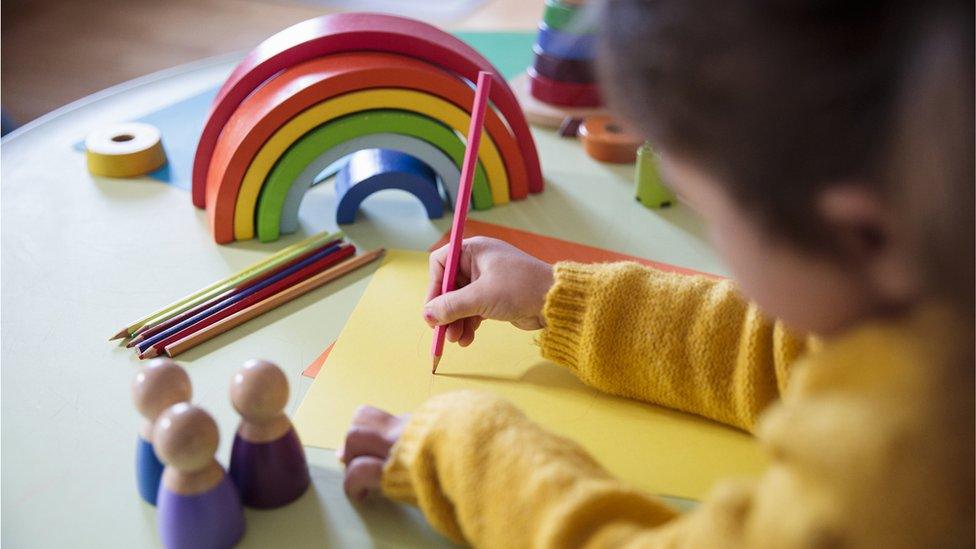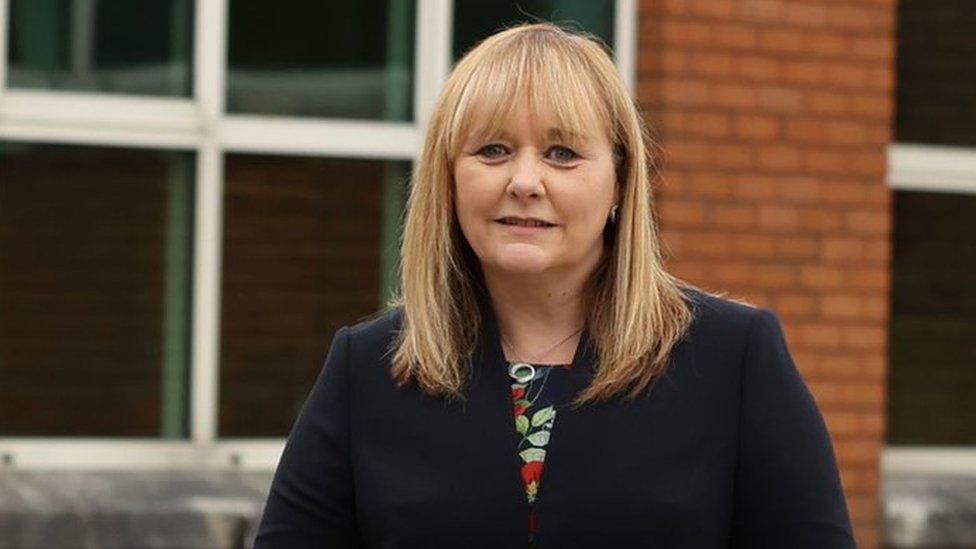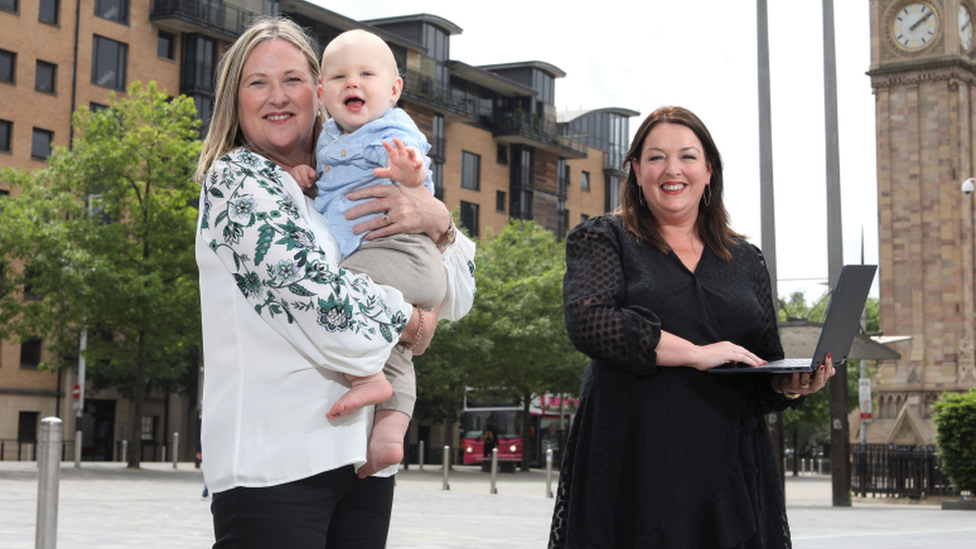NI Education: Pre-school offering 'does not go far enough'
- Published

The National Education Union (NEU) said that the early years sector had been undervalued
Offering all three and four year olds in Northern Ireland a year of pre-school does not go far enough to help working parents.
That is according to a National Education Union (NEU) report comparing early years education in Denmark and Northern Ireland.
The union also found the early years sector had been "undervalued", although that was changing.
Business groups have previously highlighted the high cost of childcare.
Research from Ulster University in 2020, external suggested that childcare costs for families in Northern Ireland were among the highest in Europe.
About 60% of three and four-year-old children in Northern Ireland currently get 12.5 hours of funded pre-school education a week, which is distinct from childcare.
Most of the rest get 22.5 hours of pre-school education - 4.5 hours a day - but before she left office the former Education Minister Michelle McIlveen announced plans for all children to get 22.5 hours in pre-school each week.
However, some pre-school leaders have raised concerns about the funding available to them even before trying to meet that target.
The NEU report called Danish Lessons is the result of a study visit to Denmark by union members and early years specialists.

The DUP's Michelle McIlveen had previously announced plans for all children to get 22.5 hours in pre-school each week
The report found that childcare and schools were much more integrated in Denmark than Northern Ireland and parents faced lower costs.
For instance, in Denmark around 92% of children aged 0-3 attend kindergarten while 98% of children aged 3-6 go to kindergarten while parents are at work.
Children begin primary school in Denmark aged six, but the country also has a network of childcare centres and out-of-school care.
"In Denmark the kindergarten and nurseries are well funded with no parent paying no more than 30% of the costs for higher income families and low-income families availing of fully-funded places," the NEU report said.
"Funding continues to be a concern for parents in Northern Ireland although all children are entitled to a free compulsory pre-school year for 2.5 hours per day during term time.
"These places are to provide high quality pre-school education - it is not childcare.
"Therefore, the free pre-school year does not go far enough to provide care for working parents."
The NEU also said that the Danish early year curriculum was centred on "play and playful experiences" and that many teachers and staff were educated to degree level.
'Wage and staffing issues'
Additionally, the NEU delegation visited one after-school centre which was open to children from six schools aged six to 10 from 15:00 until 18:00.
"Every school in Copenhagen has an affiliated after-school care centre," the report said.
"Parents usually enrol their child in an after-school centre at the same time as school enrolment.
"The city of Copenhagen guarantees a space in after-school for any family that wants it."
But the NEU report said that in both Denmark and Northern Ireland there were issues with low wages and the recruitment and retention of staff.
In Denmark, though, most early years staff belong to a union - the BUPL - which negotiates salaries and working conditions with the Danish government.
The NEU said that in Denmark there was more co-operation and consensus over the importance of early years education, and that held many lessons for Northern Ireland.
The union are due to present their findings to an all-party group of MLAs on Thursday.
- Published22 November 2022

- Published8 September 2022

- Published17 June 2021
